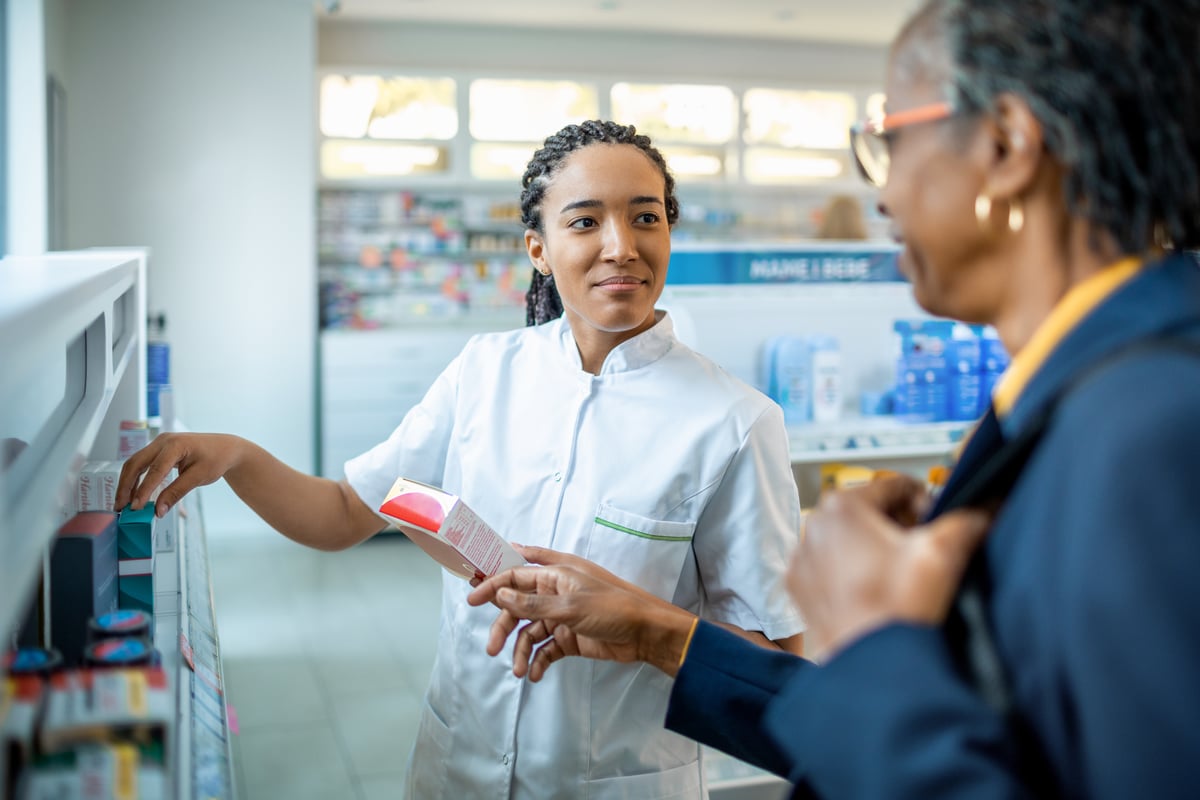
In 2023, there's one thing that's become alarmingly apparent: No one knows how to behave anymore.
And it's not our fault. After all, we were locked inside for basically two years. Isolated. Spent a lot of time online wearing stained trackies and watching celebrities make TikToks.
So, in a bid to help remind us all how to behave like polite human beings, we're taking a leaf out of New York Magazine's viral guide to existing in modern society and sharing some new rules.
In the Modern Etiquette series, Mamamia asks people in different fields to share their hard-line do's and don'ts, according to their expertise.
And now it's the pharmacist's turn.
Watch: Just on the whole ingredients thing, here's some gross ingredients hidden in your cosmetics. You'll never look at your moisturiser the same. Post continues below.
Because a trip to the pharmacy can be daunting AF. Sometimes you're in and out, and other times you're stuck in an aisle, comparing labels and ingredients and feeling like you need a science degree. Or if you're anything like us, you're walking in with an expired prescription and hoping the person behind the counter won't notice (they did).

Top Comments